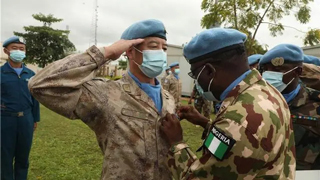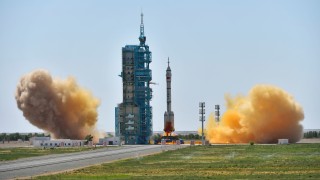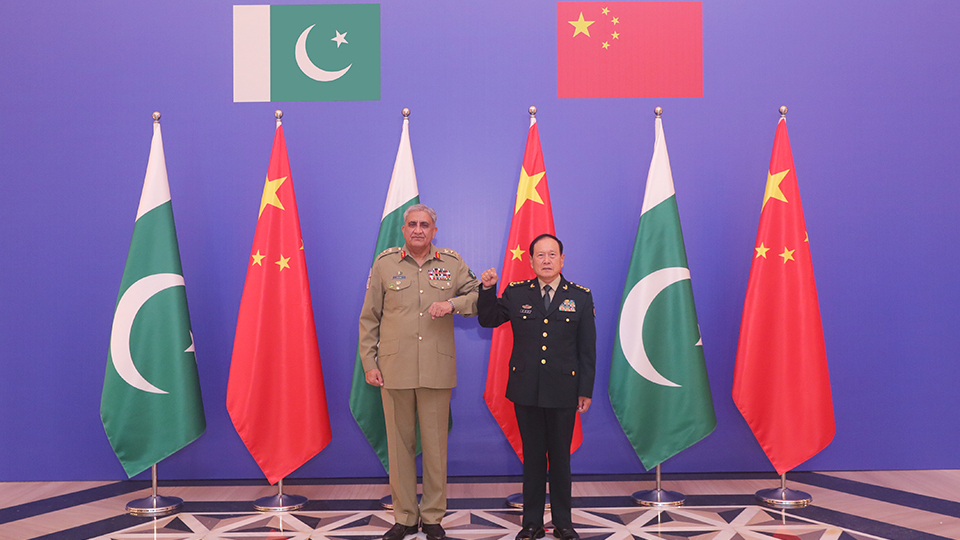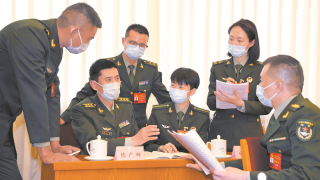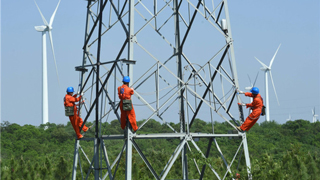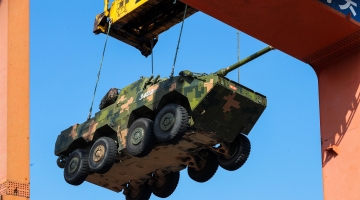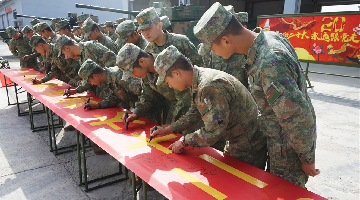By Hassan Daud Butt

The just-concluded 20th National Congress of the Communist Party of China was held at a time when the Chinese nation has embarked on a new journey toward building a modern socialist country in all respects while upholding socialism with Chinese characteristics.
Among the biggest achievements of the Party is the eradication of absolute poverty, by lifting about 100 million people, especially rural residents, out of extreme poverty in a decade. Led by the Party, China has perfected a political system that can help people meet their needs for a better life, taken measures to ensure the rule of law, and built a sustainable economy.
On the international front, the long-adhered policy of non-interference in other countries' internal affairs has elevated China's status on the global stage and enabled it to forge new partnerships, which have helped it to boost its trade with other countries that in turn has greatly contributed to global growth. Also, China has followed the principles of openness, fairness and nondiscrimination.
The 20th Party Congress has provided the guidelines for the country's major policies, including where resources are to be allocated and how to meet future challenges, and stressed the importance of realizing shared prosperity and sustaining healthy economic growth.
After Xi Jinping took over as general secretary of the CPC Central Committee in 2012, he made poverty eradication and building a moderately prosperous society in all respects the country's top priority.
The Party on its part implemented a series of policy measures to allocate adequate resources to improve rural infrastructure and create more jobs in rural areas to alleviate poverty, and expand the cover of medical insurance across the country to prevent households from slipping into poverty due to the high cost of healthcare. And the pension policy it has introduced has created a social security system for all.
The Party has also been working to reduce the wealth gap between urban and rural areas, and across regions. Thanks to the Party's strong and able leadership, and its remarkable vision and policies, China has maintained an average annual economic growth rate of a high 9.5 percent in the last four decades, with its GDP reaching $17.7 trillion in 2021, the second highest in the world, after the United States.
Fighting corruption and improving governance are the other important goals of the Party, which will help the country progress on the path of modernization and maintain its people-centric policies.
To help other countries, especially developing countries, to improve connectivity, China proposed the Belt and Road Initiative in 2013, which has played a key role in improving the infrastructure facilities in many countries, including African countries. It has helped many countries, including Pakistan, build or improve infrastructure such as airports, seaports, roads, railways and power plants, which have cut travel time, boosted transportation and trade both within and between different countries. In short, the Belt and Road Initiative promotes win-win cooperation, mutual development and shared prosperity.
As for environmental protection and climate mitigation, the Party has made great efforts to meet the Paris Agreement goals, vowing to peak its carbon emissions before 2030 and achieving carbon neutrality before 2060.
Moreover, as China's long-term investment across regions grows, it is expected to explore new investment models and create a favorable environment for peaceful global development.
As Xi said in his report to the 20th Party Congress, "We will advance new industrialization and move faster to boost China's strength in manufacturing, product quality, aerospace, transportation, cyberspace, and digital development."
China has the time-honored tradition of learning from, and opening up to, the world. This approach in itself has created opportunities for other countries to pursue sustainable development by linking their industry and supply chains with those of China's.
While China's rise evokes admiration in Pakistan, what is important for the Pakistani people is to learn from China's economic development and industrial transformation. The Pakistani people should also remember that China has made the remarkable achievements by implementing prudent economic policies, maintaining political stability, and demonstrating strong leadership.
Another important lesson other developing countries can learn from China is that true development is possible only when all the people have access to good education and healthcare, are gainfully employed, and the government provides good governance.
These lessons will help countries navigate the global headwinds generated by the COVID-19 pandemic and the unilateral and protectionist policies resorted to by the US and its Western allies. In this volatile global situation, countries pursuing development and seeking global stability need to stay true to an open, fair and mutually beneficial development agenda.
The author is the former project director and spokesperson for China-Pakistan Economic Corridor (CPEC) from 2016 till 2019. He has also served as Pakistani diplomat in China and Vietnam.
The views don't necessarily reflect those of China Daily.
